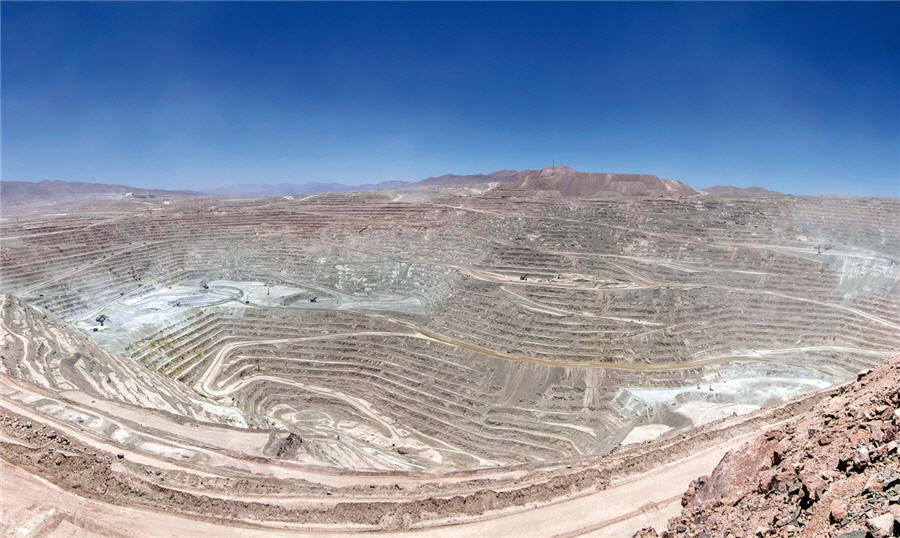BHP Americas boss says miners must make copper greener

Copper producers must collectively raise their game to improve the metal’s ethical and green credentials as ageing mines require more water and energy to produce the same amount of metal, one of BHP’s most senior executives said on Friday.
Many in the industry have emphasized the importance of copper in the quest for a lower carbon economy as its properties as an electricity conductor hand it a leading role in any shift to electric vehicles and a modernised grid.
But as the obvious deposits have been mined, the remaining copper is more inaccessible and ore is poorer quality, meaning more rock has to be displaced.
“In order to fully seize the opportunity to be part of a sustainable future, we need to minimise our material and environmental footprints,” Daniel Malchuk, president of operations at BHP’s Minerals Americas, said in a speech in Santiago, where industry executives are attending a copper conference over the coming days.
Copper is set to have a worse environmental footprint compared to now and to other metals on a per tonne basis if the current trend continues
“Collectively, we have to deliver our products more sustainably with the ethical end-consumer in mind,” he said, according to a copy of the speech.
Referring to other industries, such as technology, where Apple Inc, for instance, is working to monitor its supply chain, Malchuk said copper producers needed transparency and independent oversight from the mine to the end-user.
“The sustainability challenge is by far the biggest challenge of our generation. We must respond to this by lifting our game collectively,” he said.
He also cited findings from the Organisation for Economic Cooperation and Development that by 2060, copper is set to have a worse environmental footprint compared to now and to other metals on a per tonne basis if the current trend continues.
Mining in general is struggling to win investor trust after the Vale dam disaster in January was a reminder of the risks surrounding mining. Some 300 people are estimated to have died, making its Brazil’s most lethal mining accident.
Vale, through its Samarco joint venture with BHP, also shares the blame for a dam disaster in 2015, which killed far fewer people, but was ranked Brazil’s worst environmental disaster.
BHP, the world’s biggest listed miner and biggest producer of coking coal, used in steel, says it strives to reduce its environmental impact.
In Chile, it says it has invested in the Kelar gas-fired power plant, which it said can aid the shift to renewable energy because the gas can offset the intermittency of wind and solar.
(Reporting by Barbara Lewis Editing by Susan Thomas)
{{ commodity.name }}
{{ post.title }}
{{ post.date }}




Comments